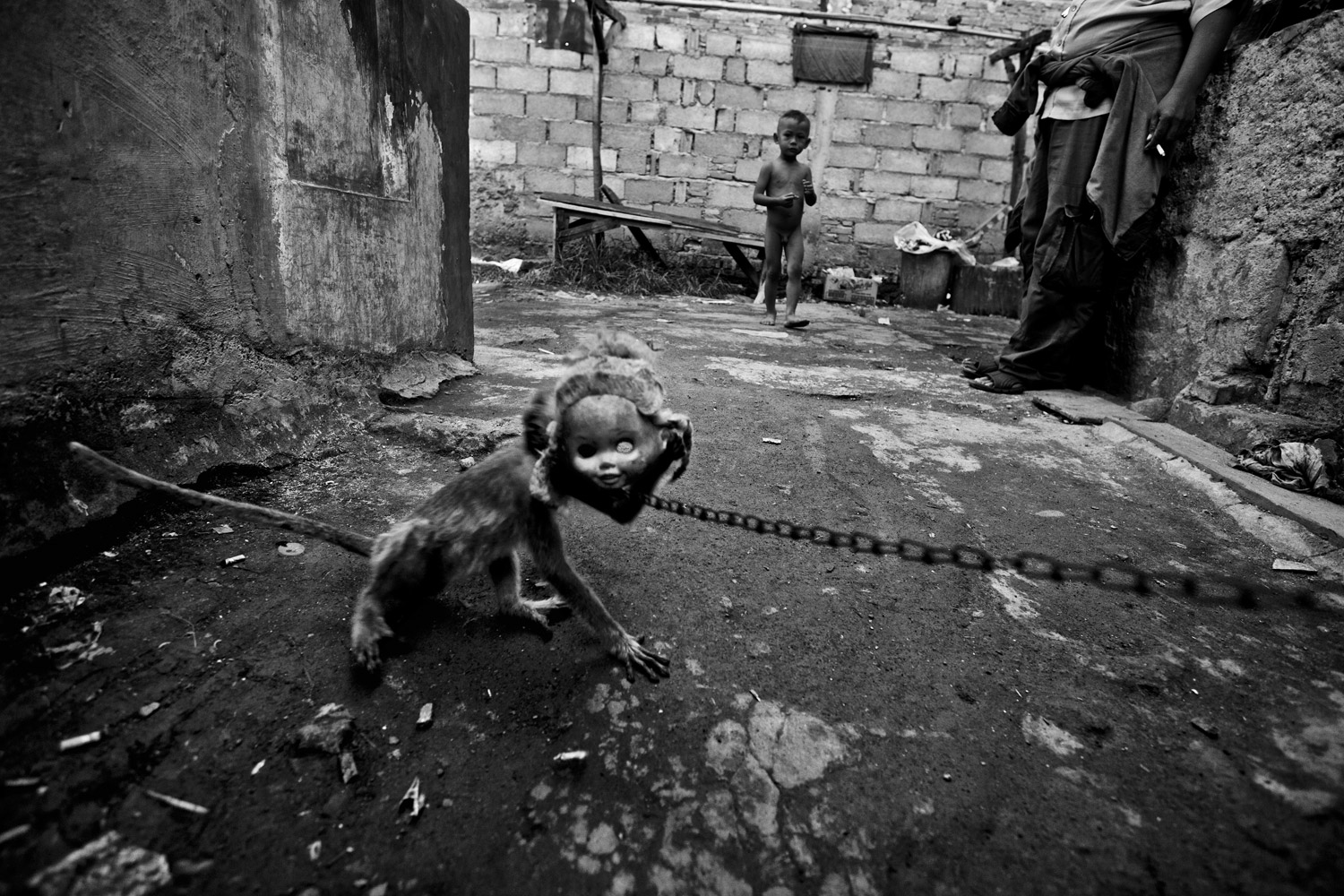
Ed Wray was terrified the first time he encountered a masked monkey. Having lived and worked in Jakarta as a freelance photographer for years, he was accustomed to seeing the animals, cruelly leashed by chains, jumping through hoops or riding trikes on the sidewalks. But for Wray, the mask was a terrifying twist.
“When I first saw a monkey with a rubber baby doll’s head stuck over its head as a mask, it immediately struck me as horrifying and beyond weird.” Wray said. “Something about the combination of the doll head – which I think is scary looking to begin with – and a long tail just struck a chord in me.”
Shocking to many Westerners, it’s a common sight on the streets of Jakarta. Most Indonesians pass along unfazed or mildly amused and a few give the handlers money. “Whether they feel more sorry for the monkey or handler, I don’t know.” Wray added.
Wray decided to venture past the sidewalk performances and explore where the monkeys lived and how they were trained. “Initially I was purely interested in the masked monkeys,” Wray said. “But once I saw the village and the condition in which the people there lived alongside the monkeys, another grim layer was added to the pictures and to my thinking about the monkeys.”
“The idea came to me that the disturbing image of the monkeys wearing the masks is a visual distillation of the kinds of horrible things that happen when people are driven to desperation by poverty.”
Wray said he was going to continue with the project, adding, “One thing I would definitely like to concentrate on is how the monkeys get to the city from the jungle—the commercial process that brings them into urban areas as pets or performers.”
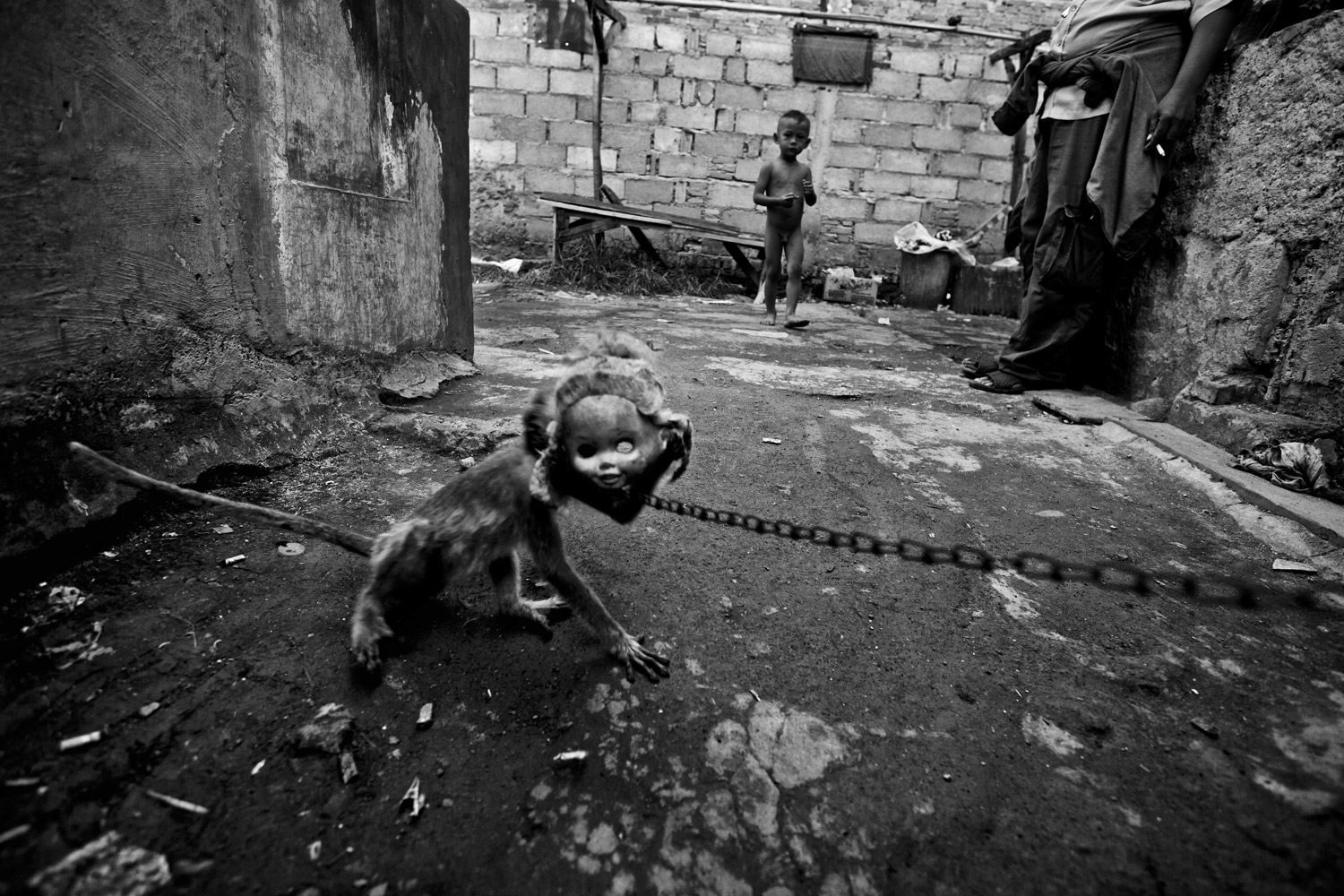
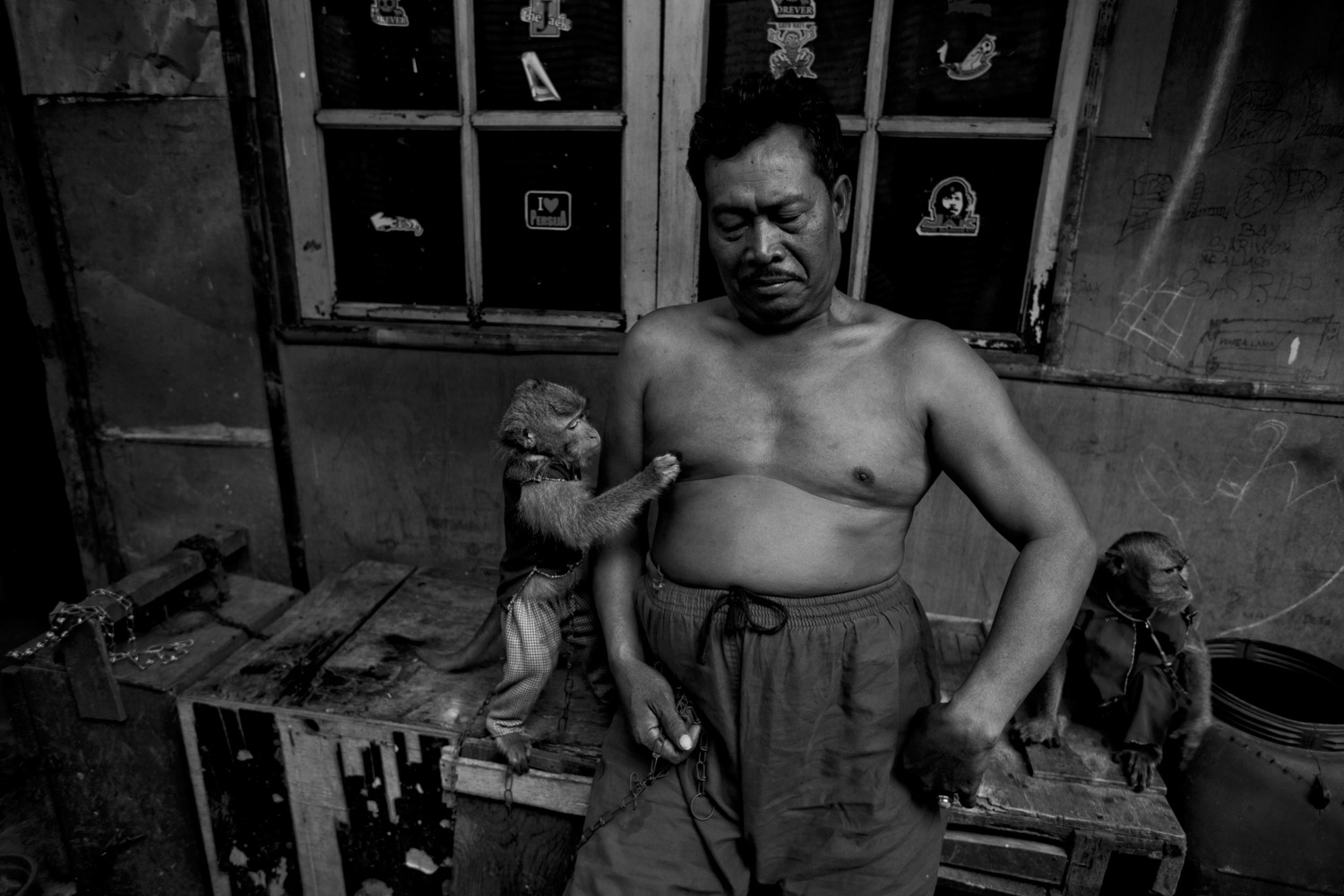
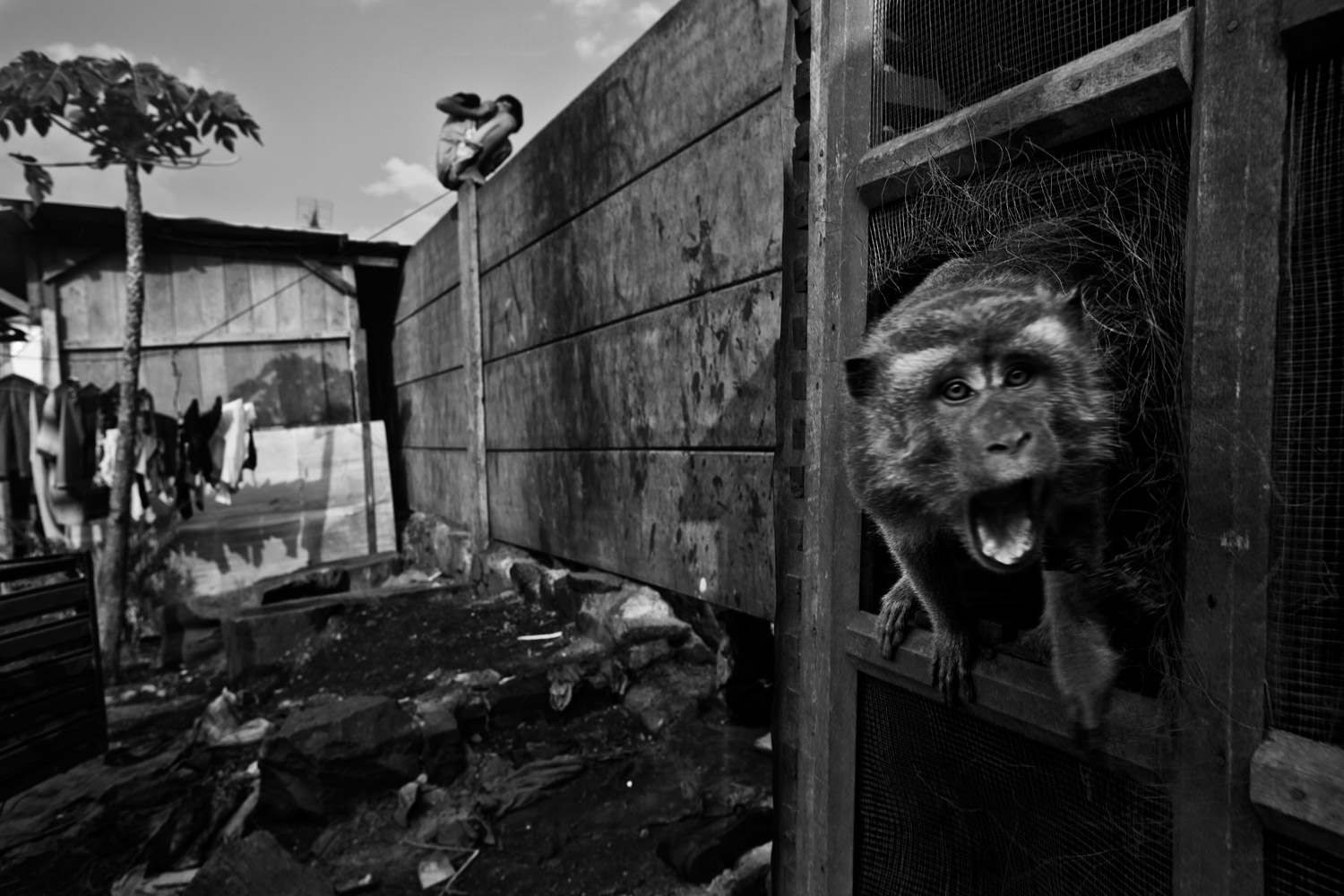
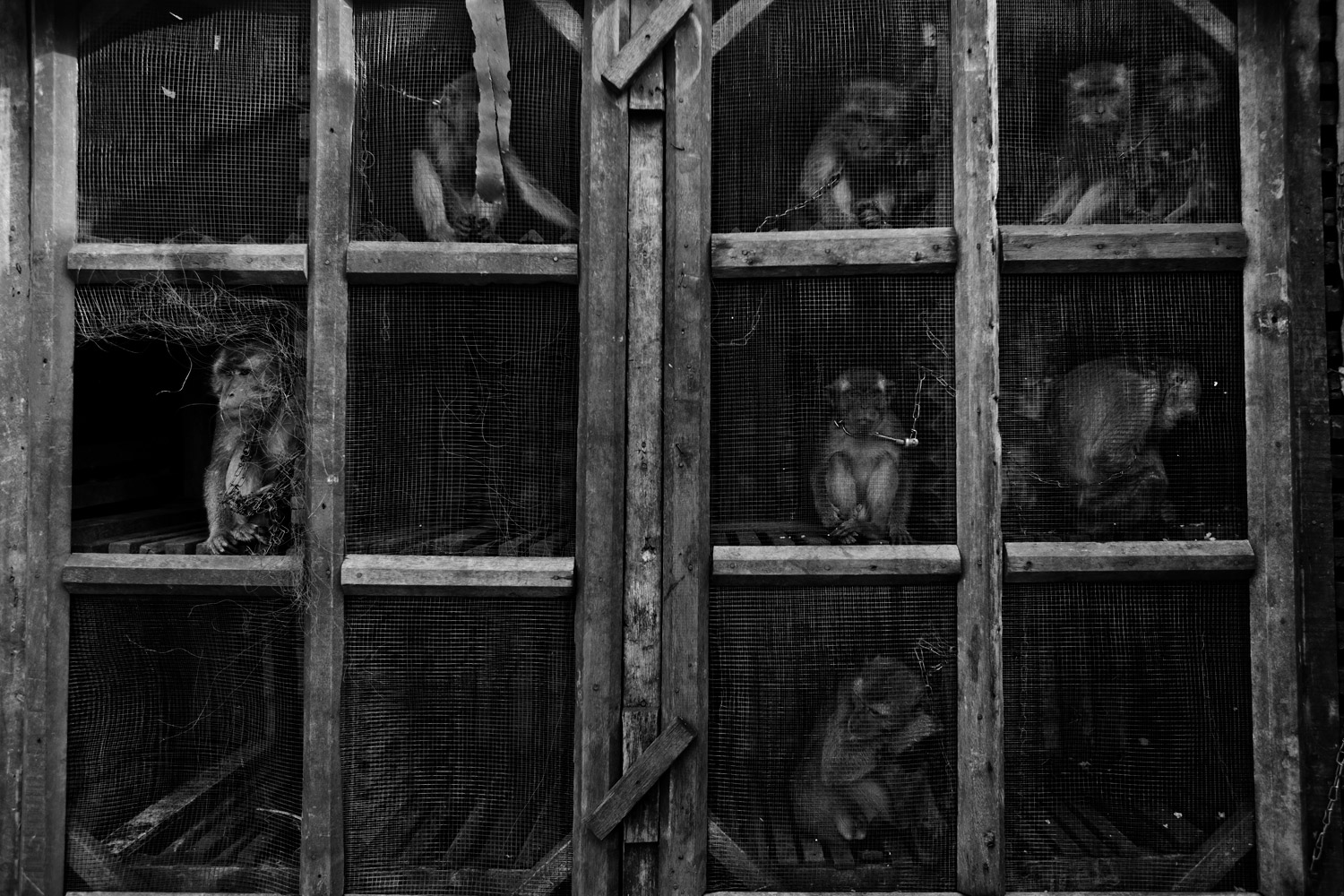
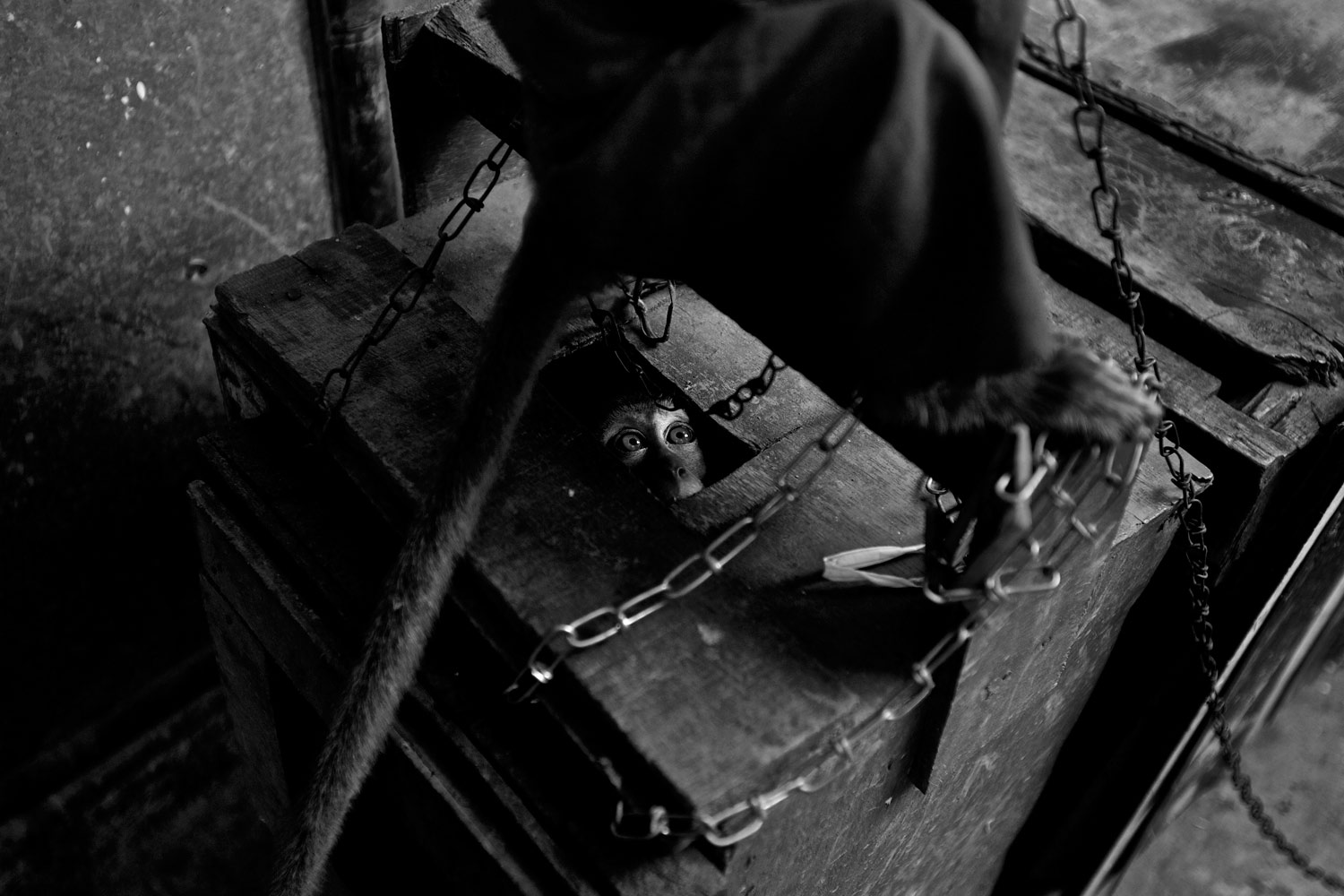
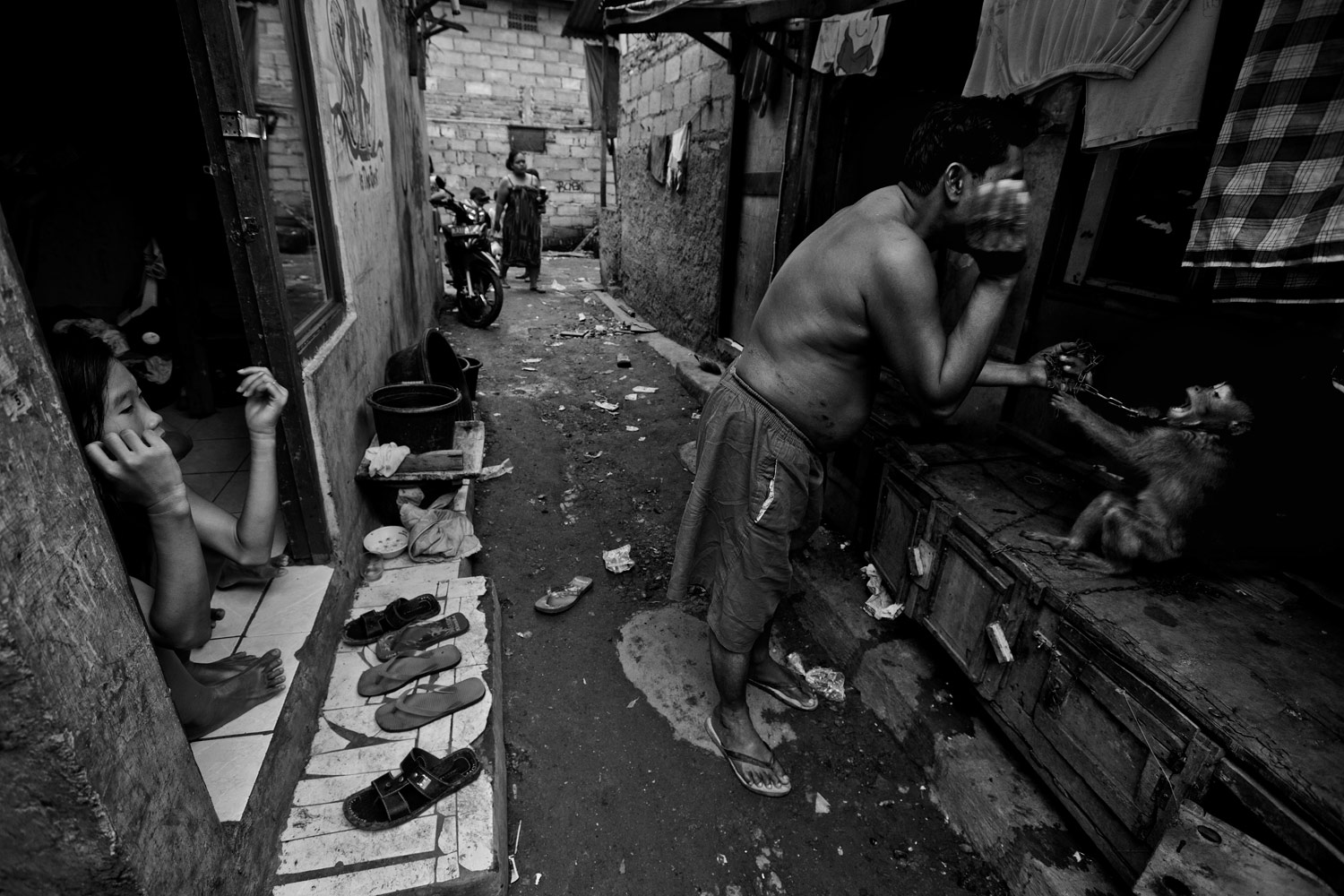
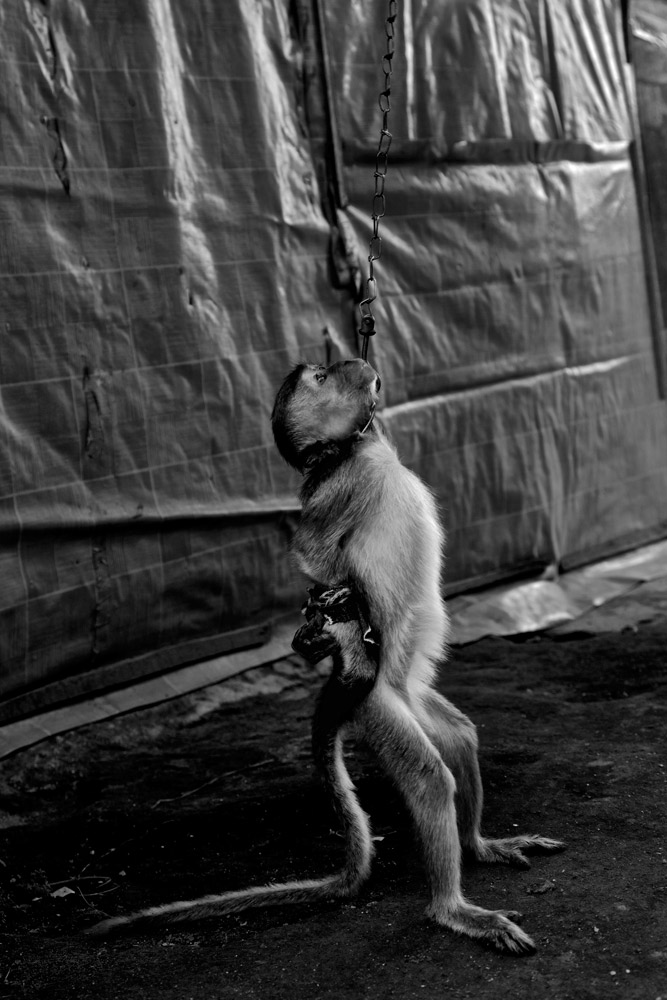
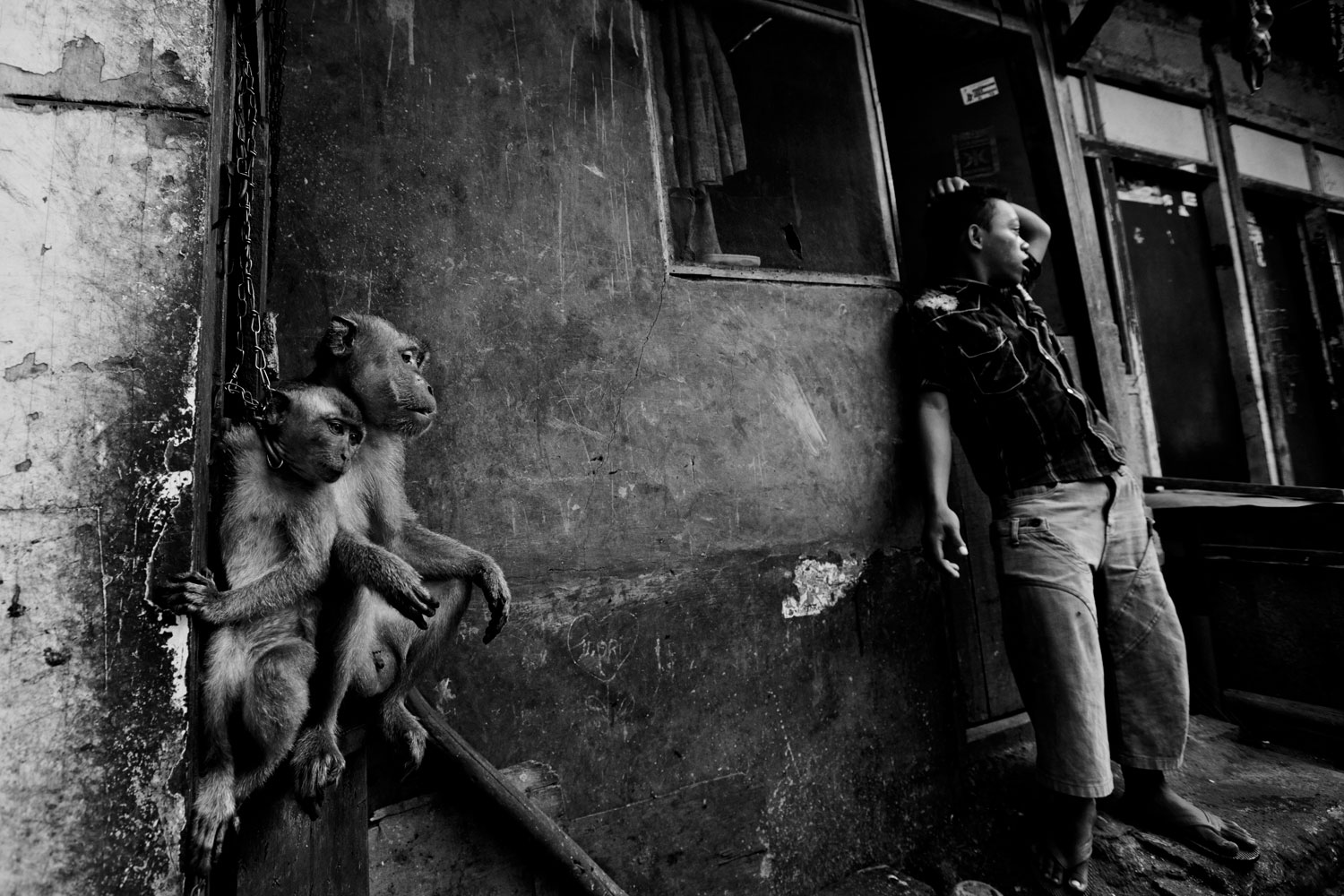
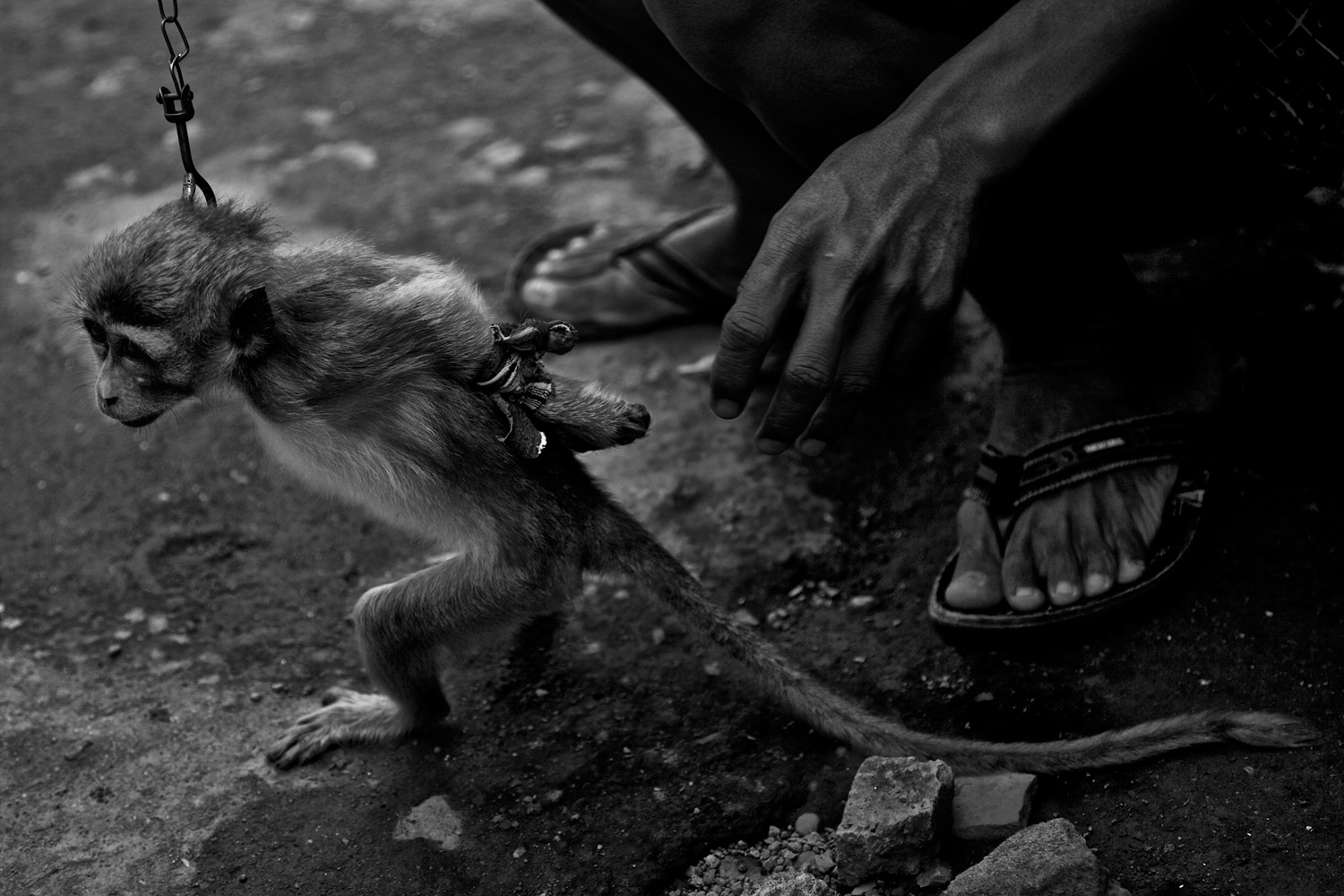
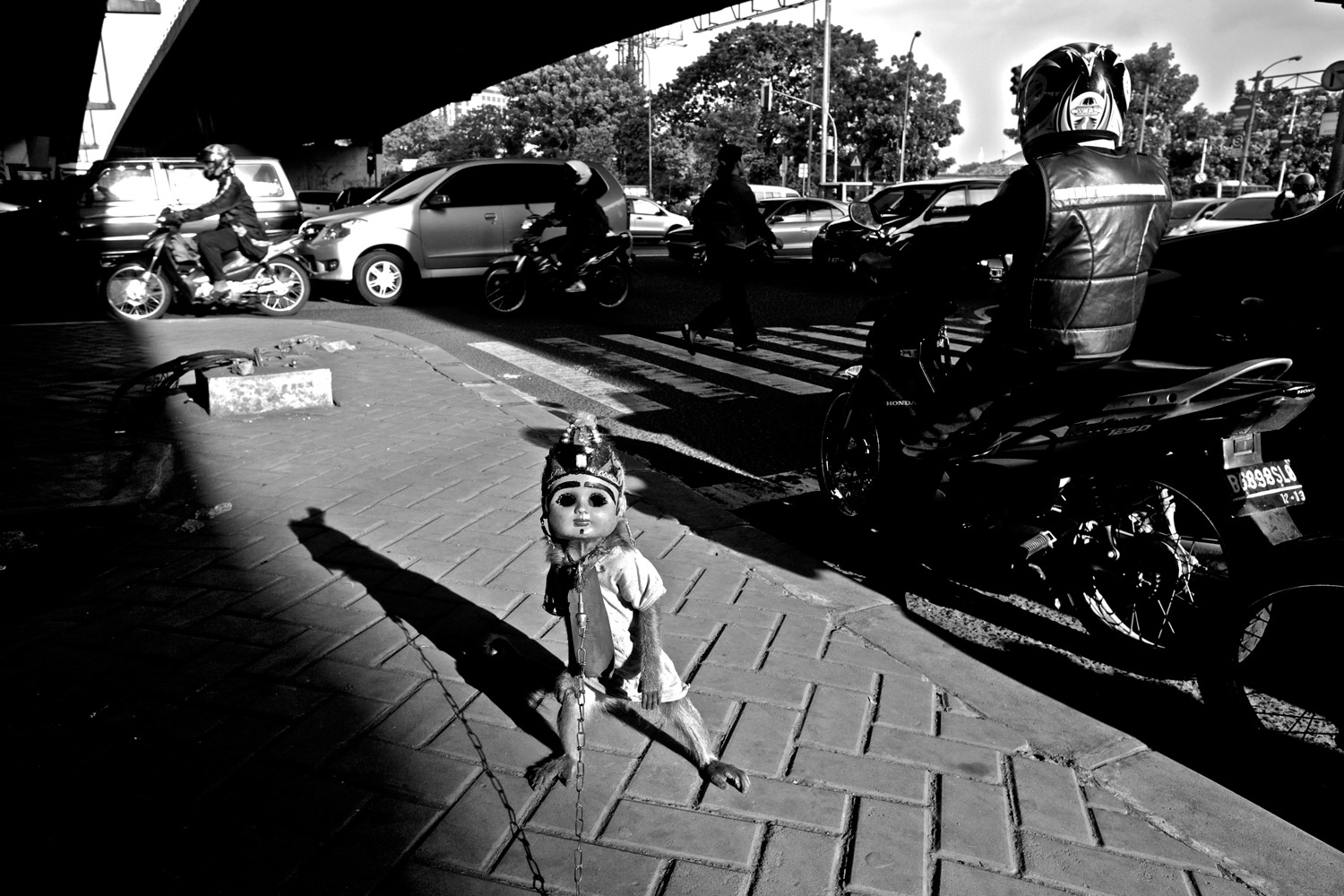
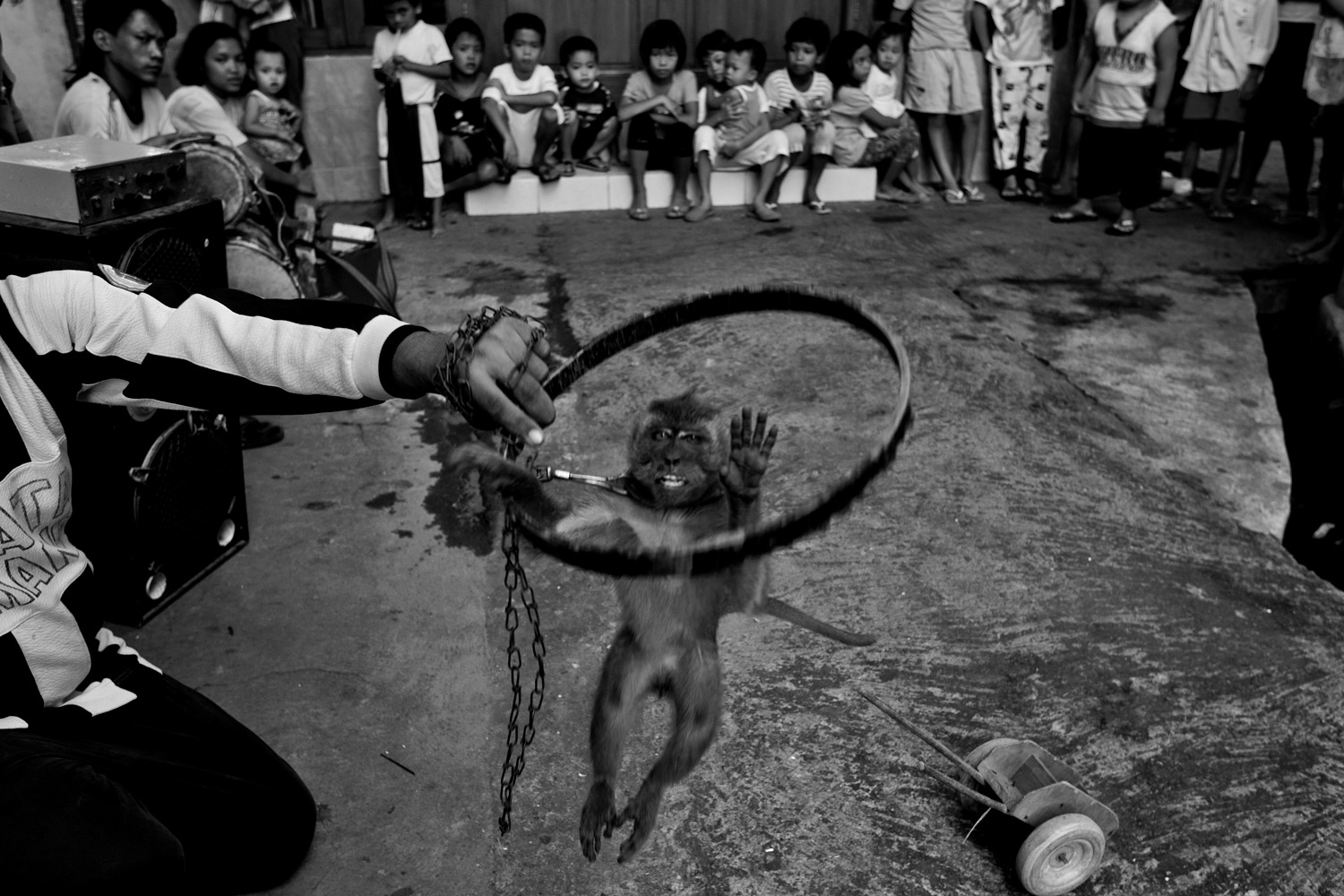
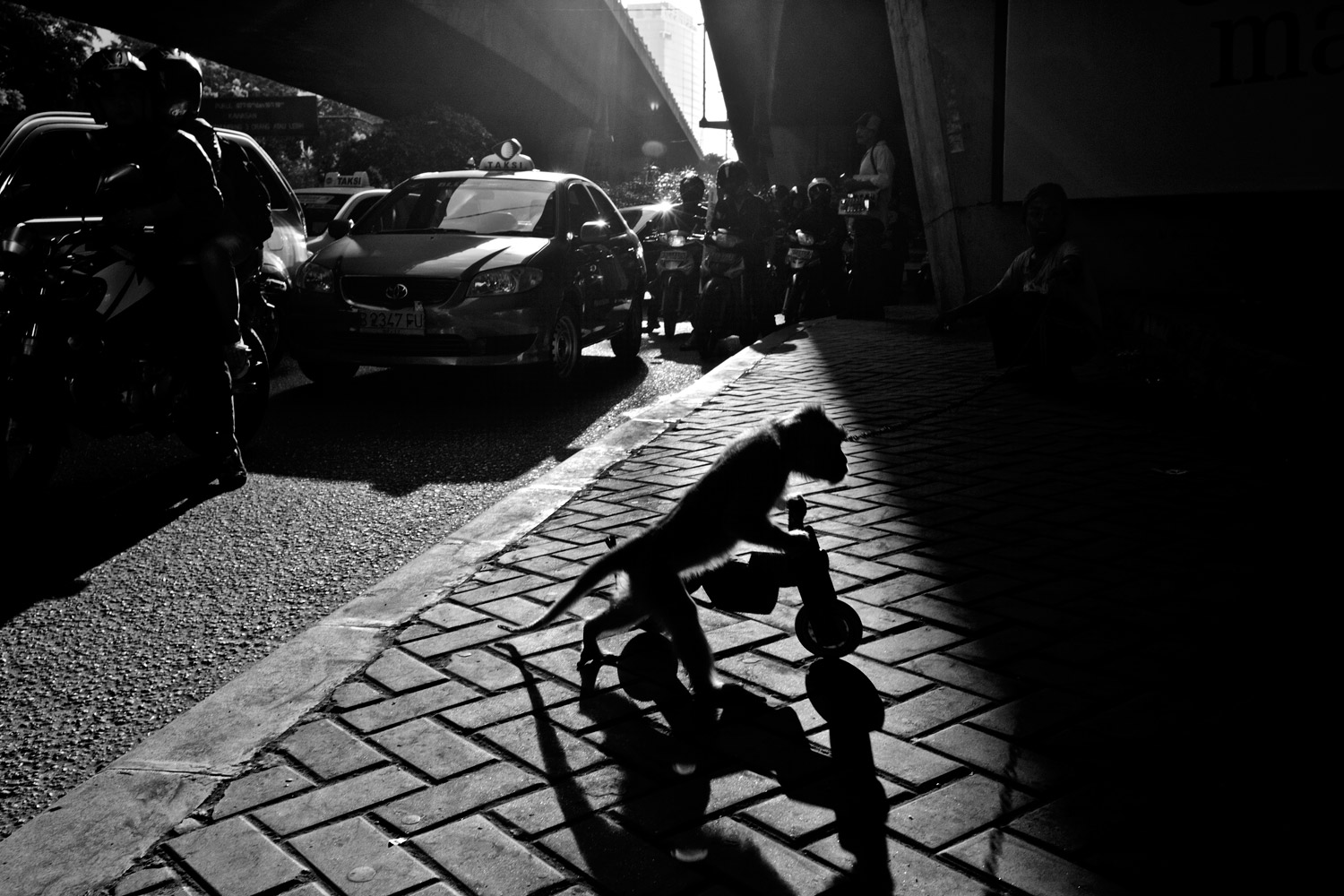
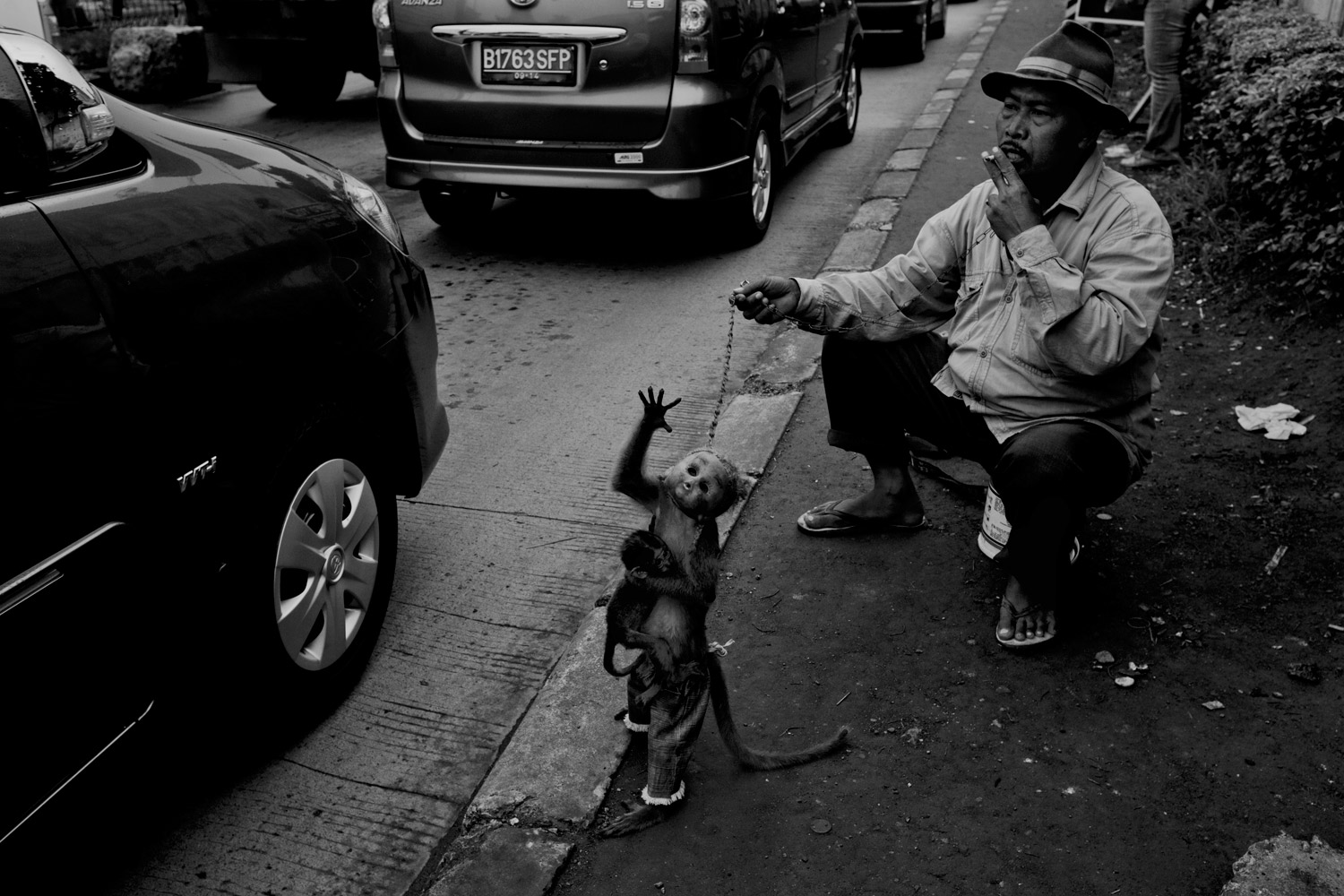
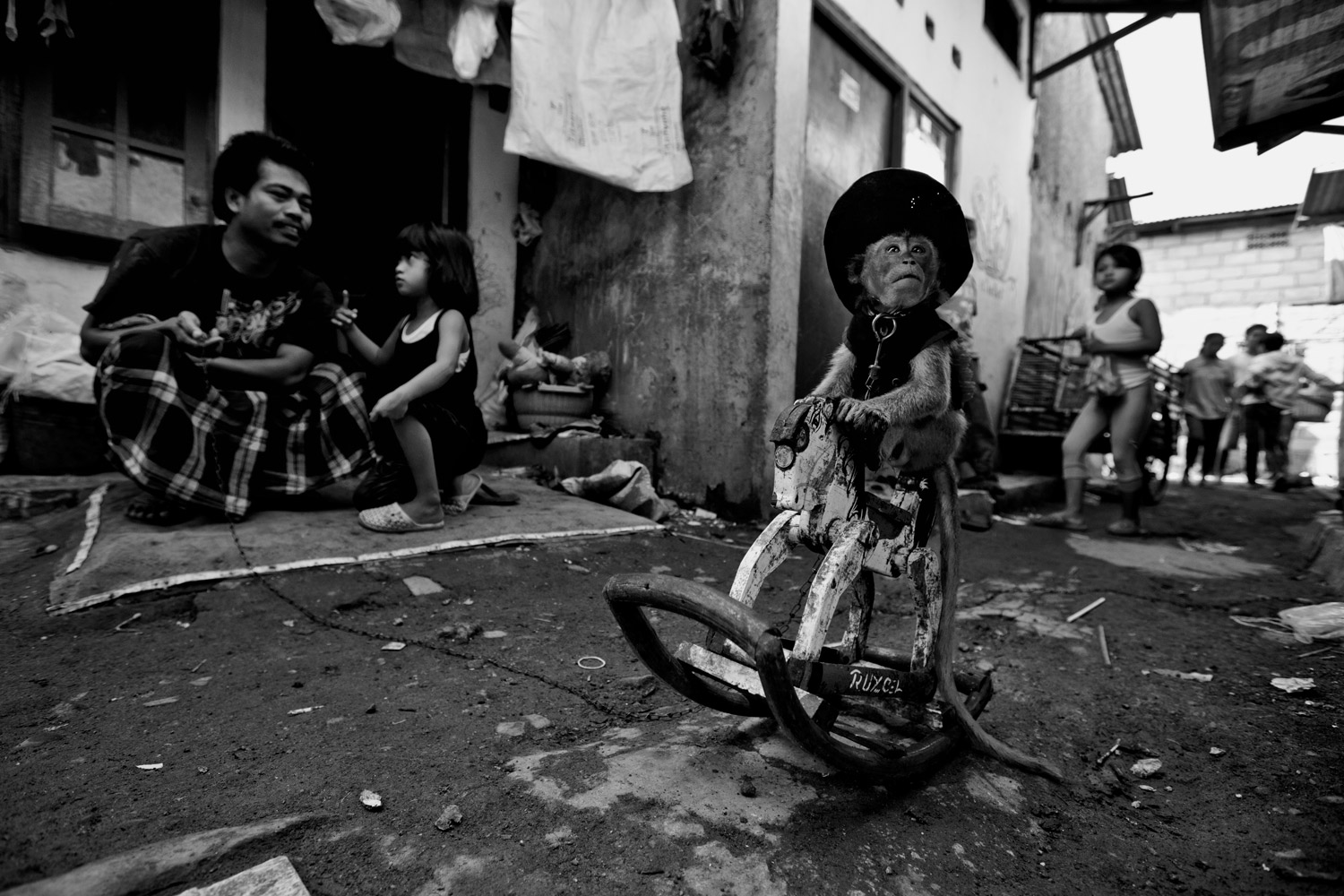
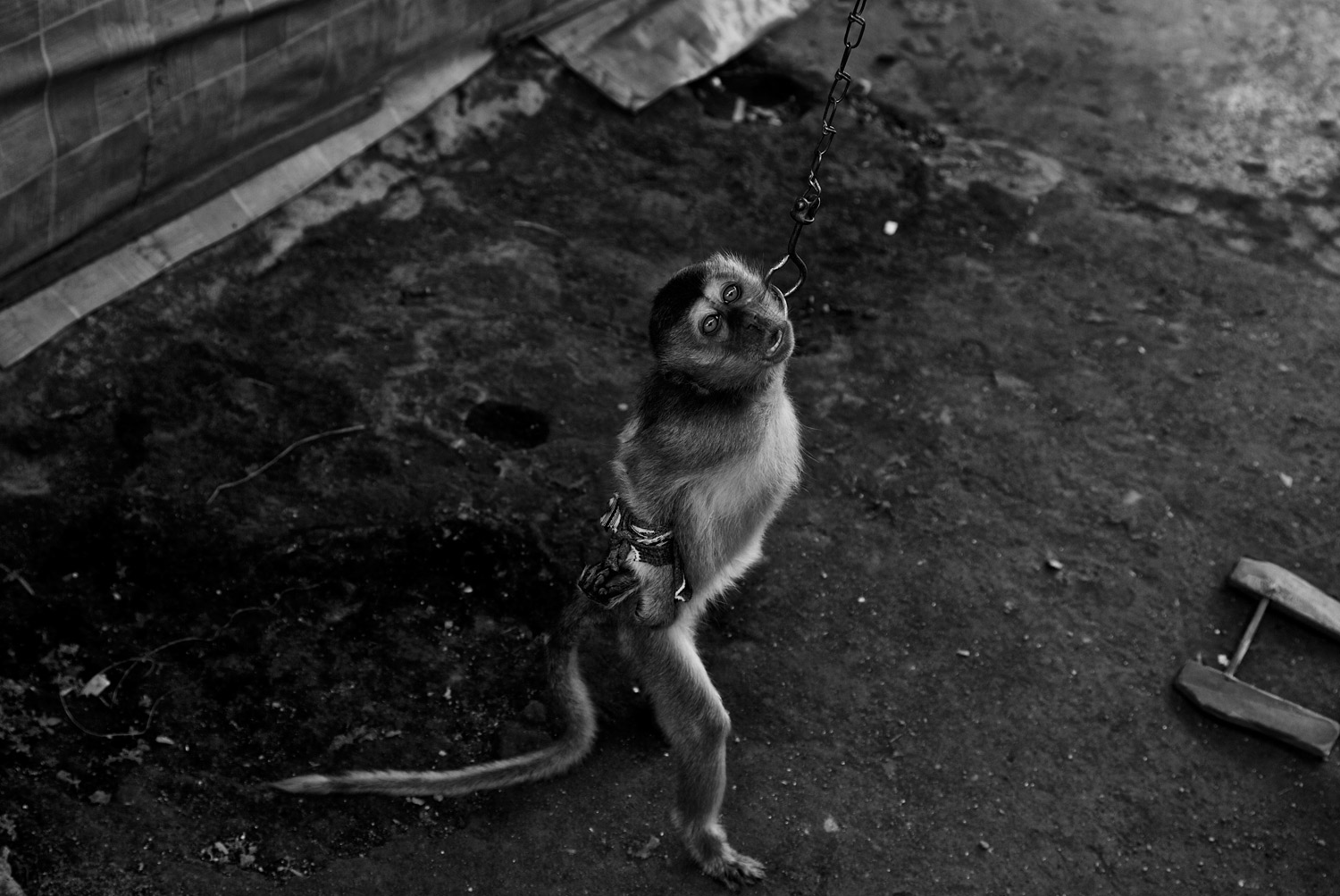
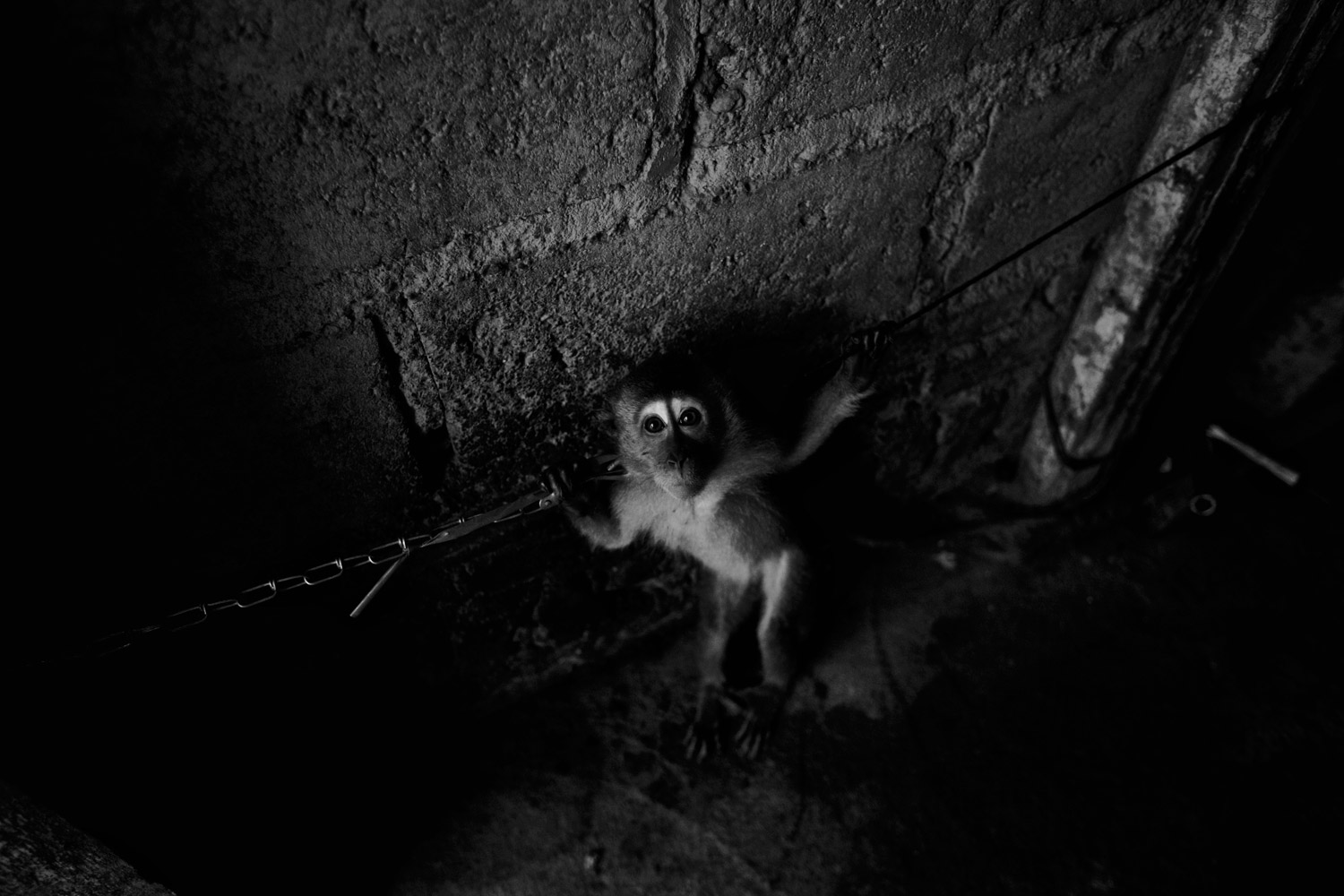
More Must-Reads from TIME
- Cybersecurity Experts Are Sounding the Alarm on DOGE
- Meet the 2025 Women of the Year
- The Harsh Truth About Disability Inclusion
- Why Do More Young Adults Have Cancer?
- Colman Domingo Leads With Radical Love
- How to Get Better at Doing Things Alone
- Michelle Zauner Stares Down the Darkness
Contact us at letters@time.com